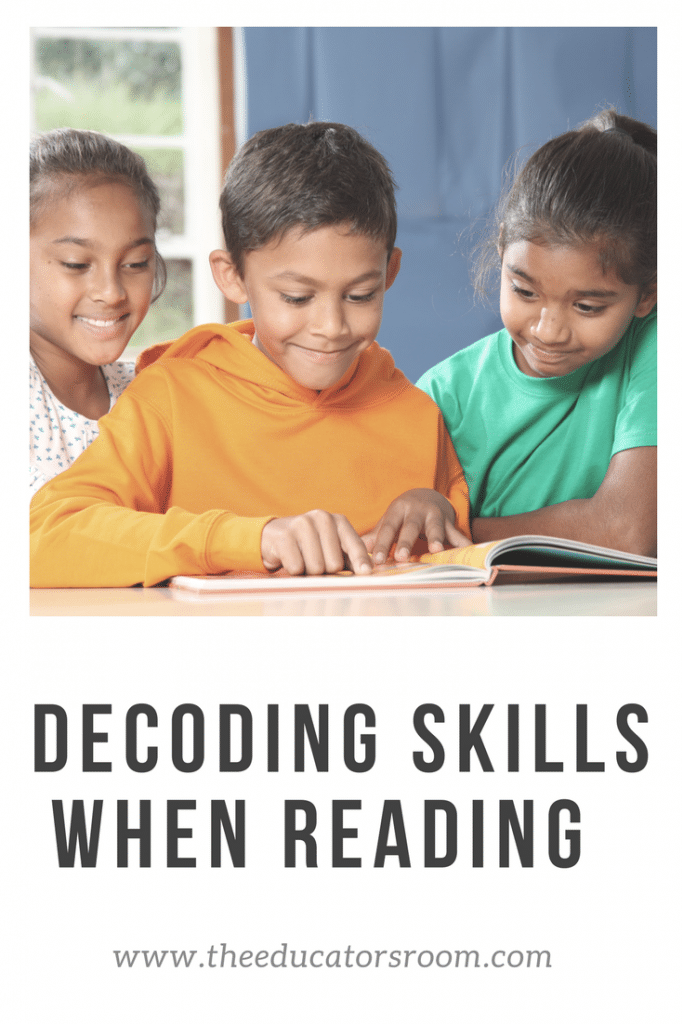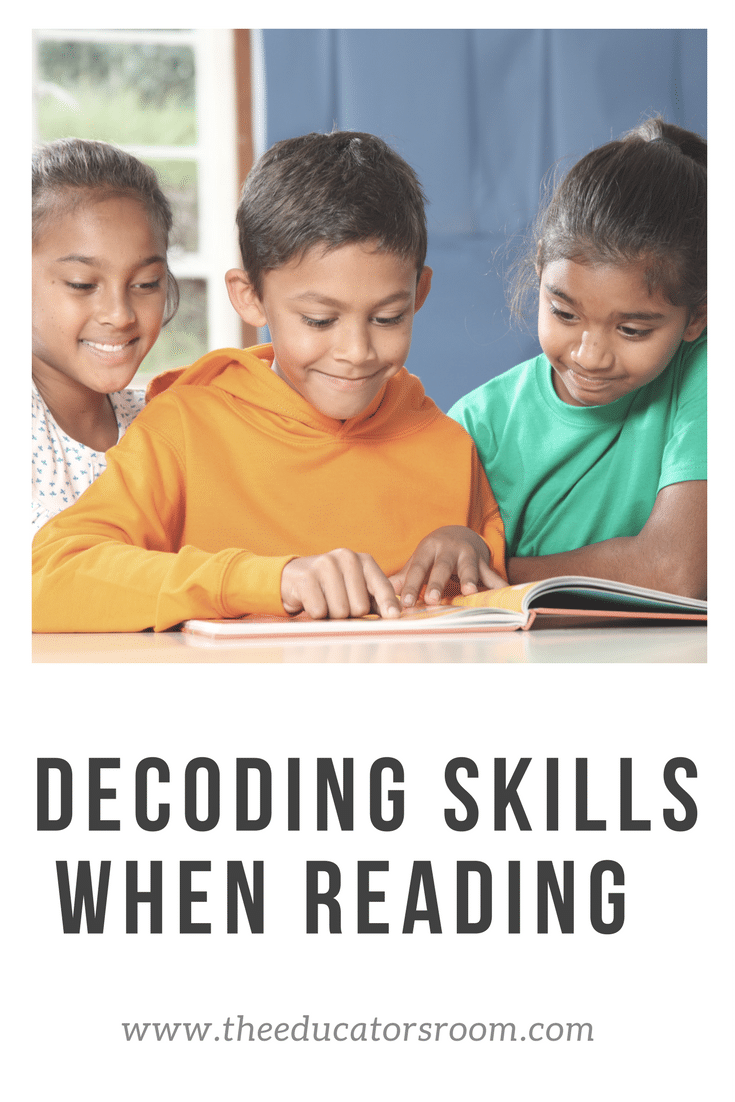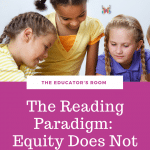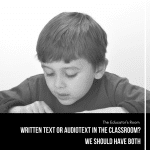To teach your students to read you must know where they are. It is important to understand their current instructional reading level (accuracy and comprehension combined) as well as their fluency level. If you are unsure how to test your students and gather this data, check out my recent article, “See Jane Read.” Students below grade level might struggle for three reasons: fluency (how quickly they read words correctly), decoding (how they attack unknown words), and/or comprehension.
This is the third article in a series about reading instruction. The second article focuses on how to increase fluency with students. Students at grade level need meaningful work to practice their reading skills and push their comprehension. They can, however, struggle with decoding. If you notice students at grade level often skip words, ask for words, or mispronounce words you will want to check their decoding. Students above grade level need extension activities and ideas to stretch their comprehension into the upper levels of knowledge.
Decoding Skills
There are many programs designed to teach decoding skills.
Corrective Reading and Rewards are two examples. There are also strategies teachers can use in the classroom to assist students in decoding. Early elementary students need to have instruction and practice with letters and sounds. They need to hear these sounds and use letters or letter tiles to play with the sounds to see how words are similar and different. This looks different in upper elementary and beyond. This article will discuss three activities than can be done to help with decoding at upper levels.
Students should know the rules for letters and their sounds.
A great way to check for this is with nonsense words. Make a list of the vowel sounds, blends, or diphthongs you want to check. Replace the consonants with a “Z.” This creates a nonsense list you can have students read. For example, -ain, -ale, -ute,- oot would transfer to a list including: zain, zale, zute, zoot. Scholastic also has a list of nonsense words that can be used to check for phonetic understanding. If students do not know the rules the word will be read incorrectly. You will then know where the focus of lessons and activities should be.
When you know the sounds that need to be taught and practiced you can do simple activities with them. You must teach students the sound and have them make the sound. Ask students to list words that follow the sound and spelling pattern. Use this to anchor new words. Create a list or small dictionary. Have students replace the first letter with another consonant or blend. Is this an actual word? Sort these lists into real vs. nonsense words. As students read, they should add new words they discover to this list or their dictionary to practice and reinforce the sounds. Students should become comfortable copying unknown words from books and passages as they read. After copying the word they should underline the vowels and state the rule associated with the vowel, blend or diphthong.
The next step students’ need is to be able to identify and understand prefixes and suffixes.
These can be from the traditional list of common prefixes and suffixes that change the meaning of words when added to a root. But they can also involve letter groups that commonly come at the beginning and ending of words that may not change the meaning of the word. Start with the most commonly found and have students find them in books, magazines, newspapers. Here is a list from Scholastic to get you started. Students above grade level can learn about Latin and Greek roots while students with decoding needs do activities with the common list. This allows for all students to be engaged in the same activity, but with meaningful lists. Students should become comfortable copying unknown words from books and passages as they read. After writing the word down students should circle the prefix or suffix. Using a piece of laminate or transparency paper over the book or passage is also helpful. This way a student only needs to use a Visa marker or dry erase marker to circle the word parts. Eventually, this will become an automatic process as they read and will help with decoding in reading.
The last step is for students to be able to decode multi-syllabic words.
These are longer words that often combine multiple vowel, blend and diphthong sounds. When students come to these longer words they should copy the word. Underline all vowels. Circle all prefixes and suffixes. Swoop chunks and think about the sounds they know. Read the word slowly. Then read the word fluently thinking about any changes that need to be made to make it a word. English is tough, often following the rules is not enough. Students may have to combine understanding and vocabulary. What makes sense here? Give students a piece of laminate or transparency film as a tool when practicing decoding multi-syllabic words. This will speed up the decoding process and allow them to become automatic in thinking through the steps.
Decoding is important as we read.
It allows our brains to quickly process words and make sense of language. Some students need direct instruction and practice with these skills. There are programs available for purchase. There are also simple things teachers can do to help students with decoding. The Florida Center for Reading Research has more printables and ideas.
As students increase in their decoding skills, they will increase their fluency and therefore their comprehension should improve as well. Finding the holes and teaching specific strategies is the key.







